Trading Demystified: Understanding the Art of Value Exchange Across All Fields
What Is Trading? Unpacking the Meaning of Trading Across Fields
Trading is a concept as old as civilization itself. At its core, trading involves the exchange of goods, services, or assets between two parties. This exchange is rooted in the principle of value—each party gives something they perceive to be of lesser value in exchange for something they desire more. While trading has evolved over centuries, its fundamental essence remains unchanged. From bartering in ancient markets to sophisticated digital platforms today, trading is a universal activity that transcends industries and disciplines.
In this blog, we will explore what trading truly means and examine its application across various fields—not just limited to stock markets or cryptocurrency. Interestingly, many of us are already engaging in trading without even realizing it, whether in our daily interactions or as we approach something like a structured trading course.
The Essence of Trading: An Exchange of Value
Trading is about balancing perceived value. When you trade, you’re essentially participating in a system where two entities agree on an equitable exchange. This exchange can involve tangible items, such as goods and products, or intangible items, such as knowledge, skills, or digital assets. The underlying principle is mutual benefit—both parties feel that they have gained something of greater value than what they gave up.
Trading in Everyday Life
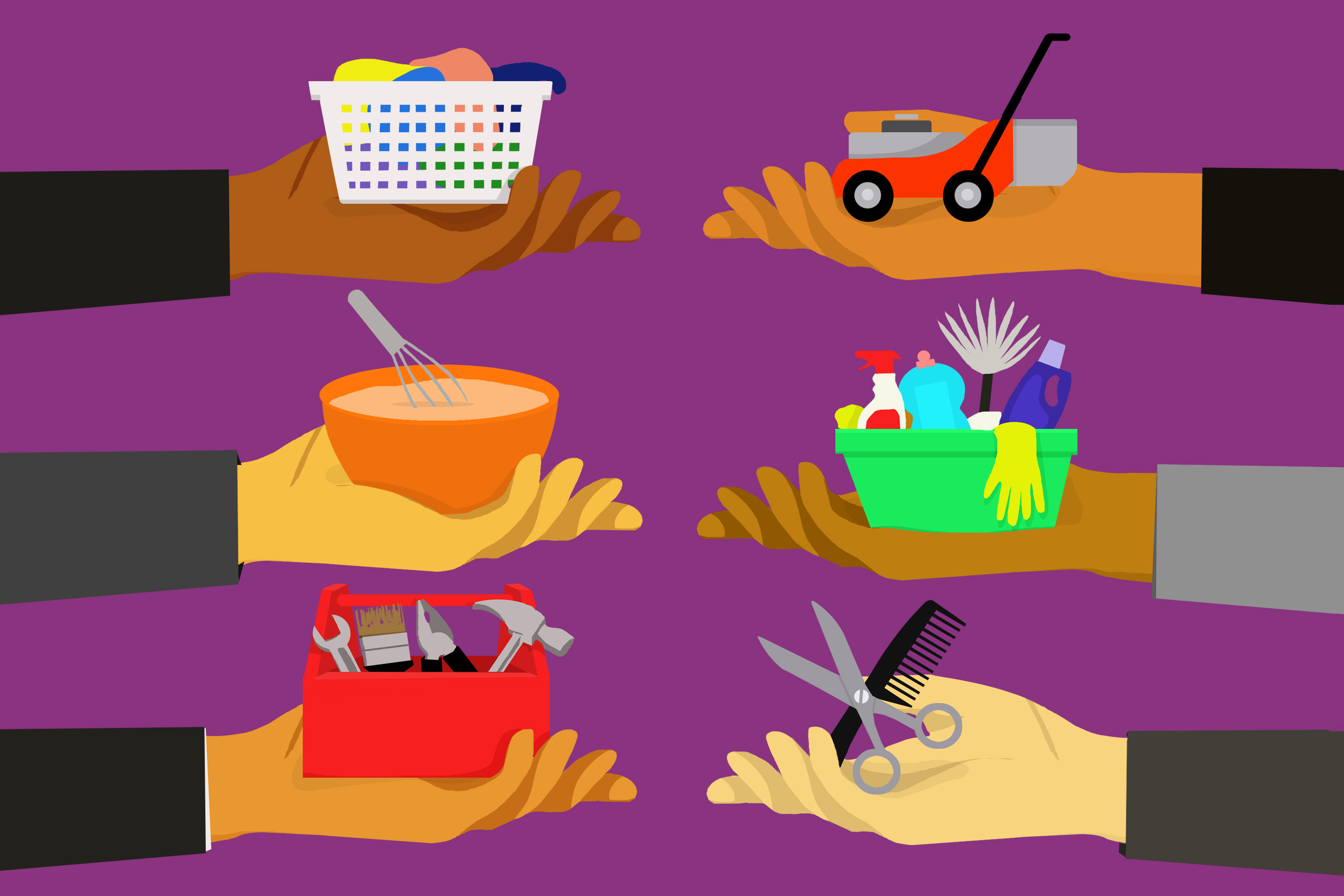
You may not realize it, but you engage in trading every day. When you purchase groceries, you trade money for food. When you spend time helping a friend in exchange for their assistance later, you’re trading favors. Even conversations involve a form of trading—an exchange of ideas, thoughts, or emotions.
This highlights the omnipresence of trading. It’s not limited to markets or businesses; it’s a fundamental human activity.
Trading in Different Fields
1. Stock Market Trading
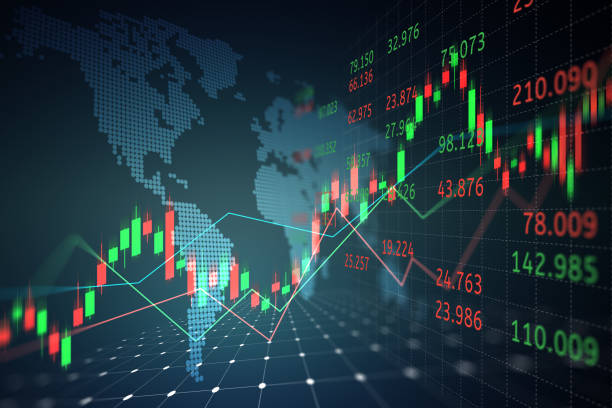
In the stock market, trading involves the buying and selling of shares, bonds, or other financial instruments. Traders aim to profit by predicting price movements, whether through long-term investment or short-term strategies like day trading. The stock market exemplifies trading in a structured and regulated environment.
2. Cryptocurrency Trading
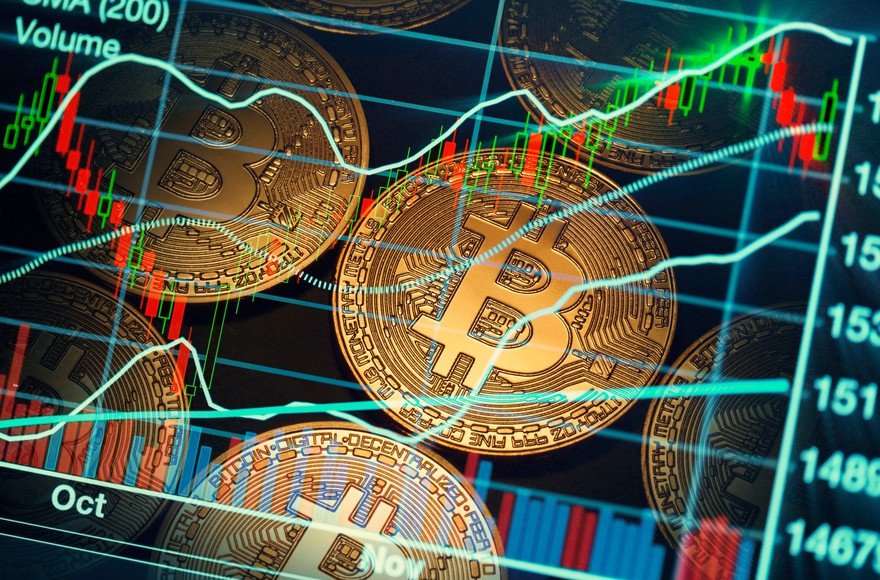
The rise of blockchain technology has given birth to cryptocurrency trading. Unlike traditional markets, crypto trading operates 24/7 and involves decentralized digital assets like Bitcoin, Ethereum, and altcoins. Traders analyze market trends, news, and technical indicators to capitalize on price fluctuations.
3. Commodity Trading

Commodity trading involves raw materials like oil, gold, or agricultural products. Traders speculate on the future price of these goods, often using derivatives like futures contracts to hedge risks or make profits. Commodity trading has been a cornerstone of economies for centuries.
4. Skill and Knowledge Trading

Outside of financial markets, trading can involve the exchange of skills or knowledge. For example, a graphic designer may create a logo for a business in exchange for web development services. This form of trading thrives in freelancing communities and barter systems.
5. E-commerce and Product Trading
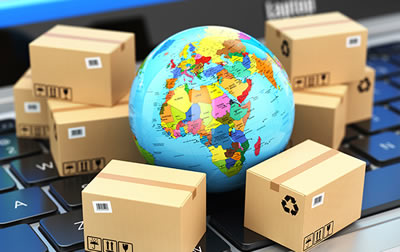
E-commerce platforms like Amazon and Etsy facilitate trading at scale. Here, sellers trade products for money, leveraging digital storefronts to reach global audiences. The core principle remains the same—an exchange of value between buyers and sellers.
6. Cultural and Creative Trading
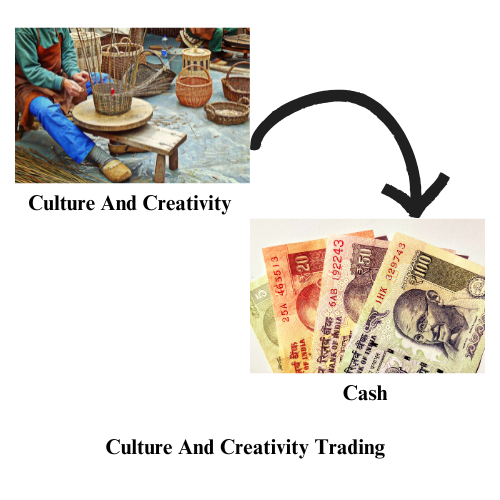
India is a land of diverse cultures, where creativity is deeply ingrained in people's lives. Many individuals use their unique cultural skills and crafts as a means of trade. For instance, artisans create hand-made buckets, intricate textiles, or traditional artifacts, blending cultural heritage with expression. These creations are sold in exchange for money, which is then used to fulfill various needs. This trade not only preserves cultural identity but also sustains livelihoods, forming a continuous cycle of creativity, commerce, and economic growth.
The Evolution of Trading
From Barter to Digital Platforms

Trading began with barter systems where goods were exchanged directly. With the invention of money, trading became more flexible and scalable. Today, trading has gone digital, with platforms enabling transactions at the speed of light, connecting traders globally.
The Role of Technology
Technology has revolutionized trading. Algorithms, artificial intelligence, and data analytics now play a crucial role in financial trading. E-commerce platforms and social networks have democratized trading by empowering individuals to participate in markets that were once exclusive.
The Principles of Successful Trading
-
Understanding Value: Whether it’s financial markets or personal skills, understanding what is valuable to both parties is critical.
-
Building Trust: Trust is a cornerstone of trading. It ensures smooth transactions and long-term relationships.
-
Risk Management: Trading often involves risks. Effective risk management is essential to avoid losses, whether in financial markets or everyday exchanges.
-
Negotiation Skills: The ability to negotiate ensures that both parties feel satisfied with the trade.
Why Trading Matters
Trading is more than an economic activity; it’s a driver of progress. It facilitates the flow of resources, encourages specialization, and fosters innovation. On a personal level, trading enables us to fulfill needs and desires by leveraging what we already possess.
In today’s interconnected world, trading is not just an act but a necessity. It bridges gaps, connects cultures, and creates opportunities. Understanding trading in its various forms allows us to navigate life and markets more effectively.
Conclusion
Trading, in its essence, is the exchange of value. Whether it’s trading stocks, cryptocurrencies, commodities, skills, or ideas, the principles remain consistent: mutual benefit, trust, and understanding of value. As we continue to innovate and globalize, trading will remain a cornerstone of human interaction and progress. Without realizing it, many of us are already trading—every day, in countless ways. By understanding this, we can better leverage opportunities, whether in life or in pursuing structured trading knowledge through courses or platforms.